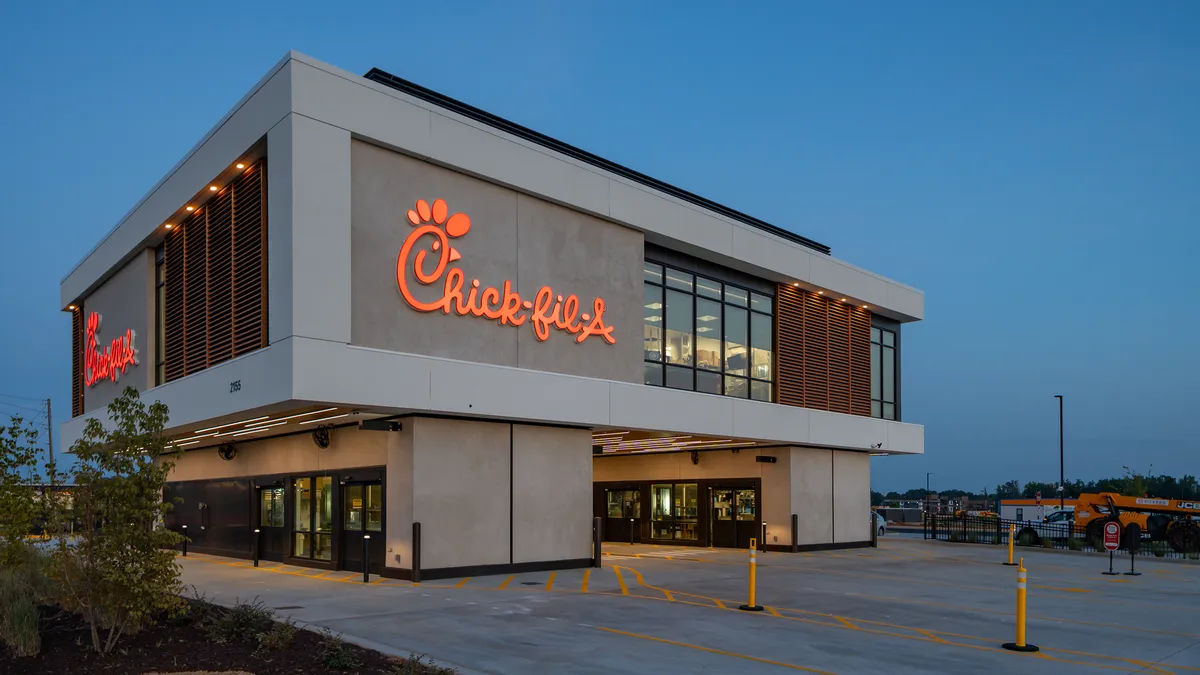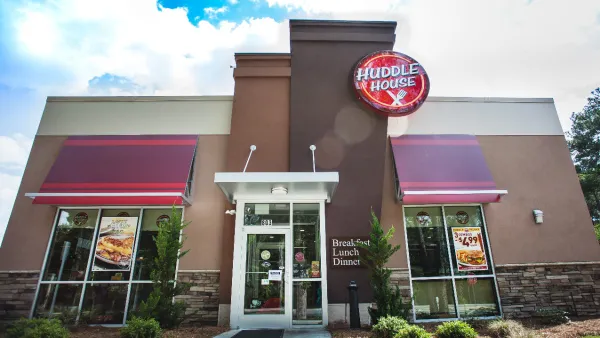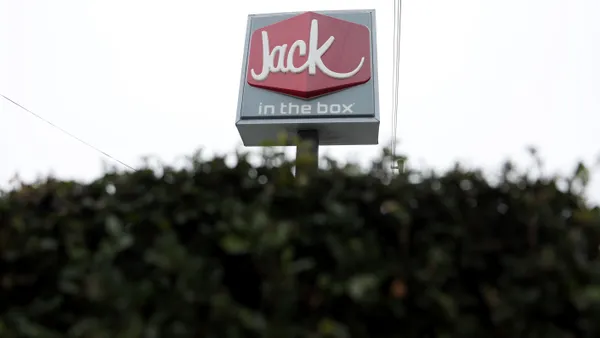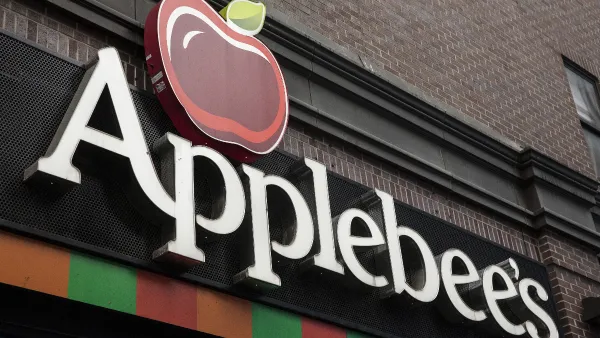Dive Brief:
- Chick-fil-A will open an elevated drive-thru with a food conveyor belt in the Atlanta-metro area on Thursday, according to a press release.
- The chicken chain says its elevated drive-thru can serve two to three times as many cars as its standard stores. The unit has no dining room.
- The unit is Chick-fil-A’s second test of an experimental concept this year, following the opening of its mobile-ordering test unit in New York City.
Dive Insight:
Chick-fil-A floated the idea of the elevated drive-thru in 2023 as part of an effort to unify its hospitality-based brand identity with technological changes in restaurants.
If the elevated drive-thru is built at more units, it could help the company speed up drive-thrus and maintain its gargantuan unit volumes — about 60% of orders come through the drive-thru. According to research from Intouch Insight, Chick-fil-A has one of the fastest drive-thru times when adjusted for the number of cars in the drive-thru.
The design consists of a large kitchen — twice the size of its normal restaurant kitchens — raised up above four drive-thru lanes. The kitchen dispatches the food to workers in the drive-thru via a conveyor belt system, which the company claims can deliver a meal every six seconds through each of the drive-thru lanes. This means the conveyor belt system could, theoretically, deliver a maximum of 40 meals per minute, or 2,400 meals in an hour across four drive-thru lanes.
The company said this focus on tech and throughput would not impinge on its hospitality, given that workers still take orders and pass them to customers. Customers can order ahead using Chick-fil-A’s app and pick up through dedicated lanes, or they can place an order at the drive-thru with an employee.
According to the press release, the franchisee will employ around 150 full and part-time workers at the location. A standalone Chick-fil-A typically employees 80-120 workers, the company said in an email to Restaurant Dive.
Chick-fil-A has also been expanding mobile pickup lanes across its system. The chain expanded the tech to over 300 units last year. It also has been using geofencing to reduce wait times. Dedicated mobile pickup lanes are an increasingly important touchpoint for some brands. Chipotle, for example, is building evermore Chipotlanes, which drive up its unit volumes.















